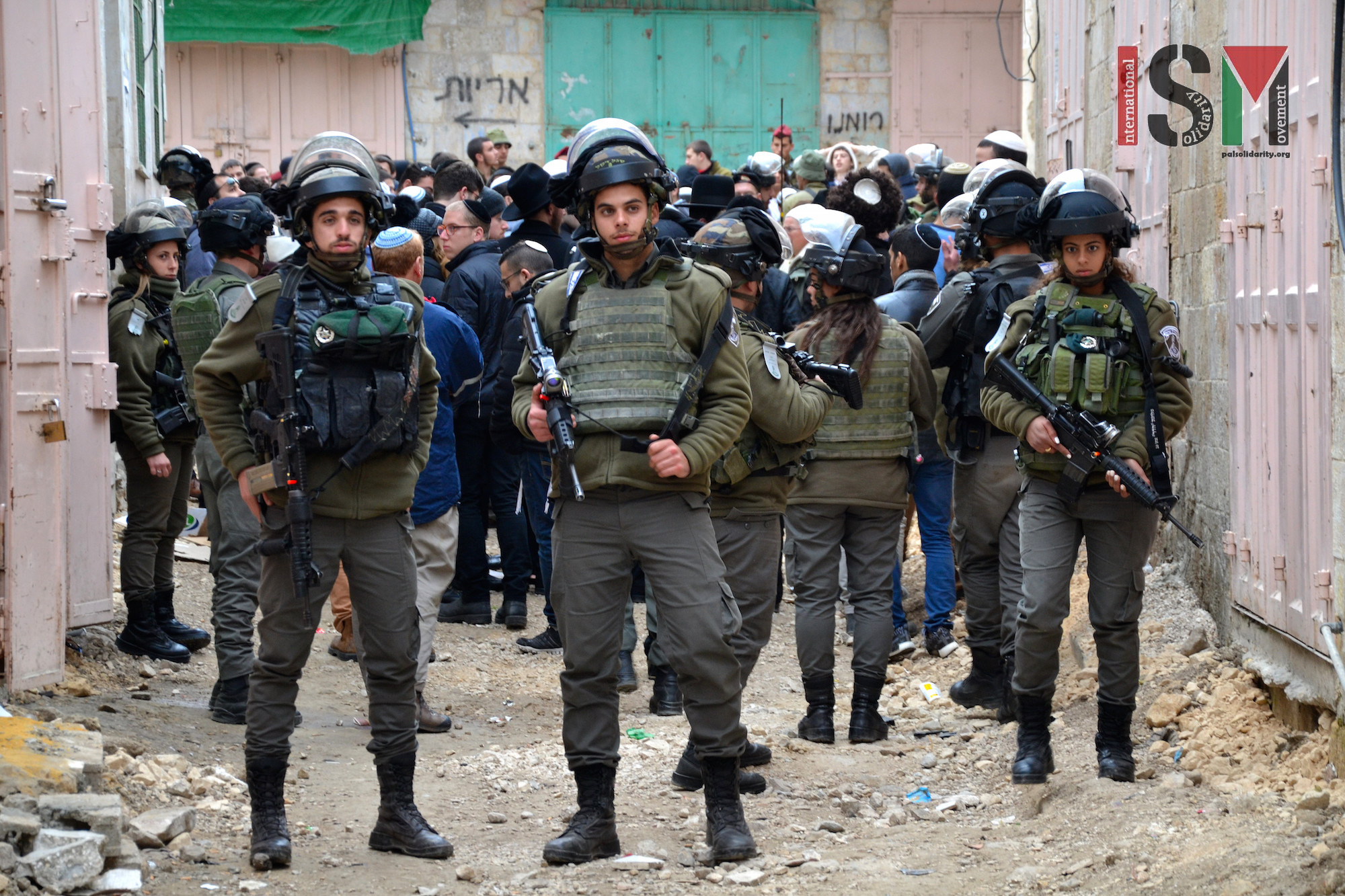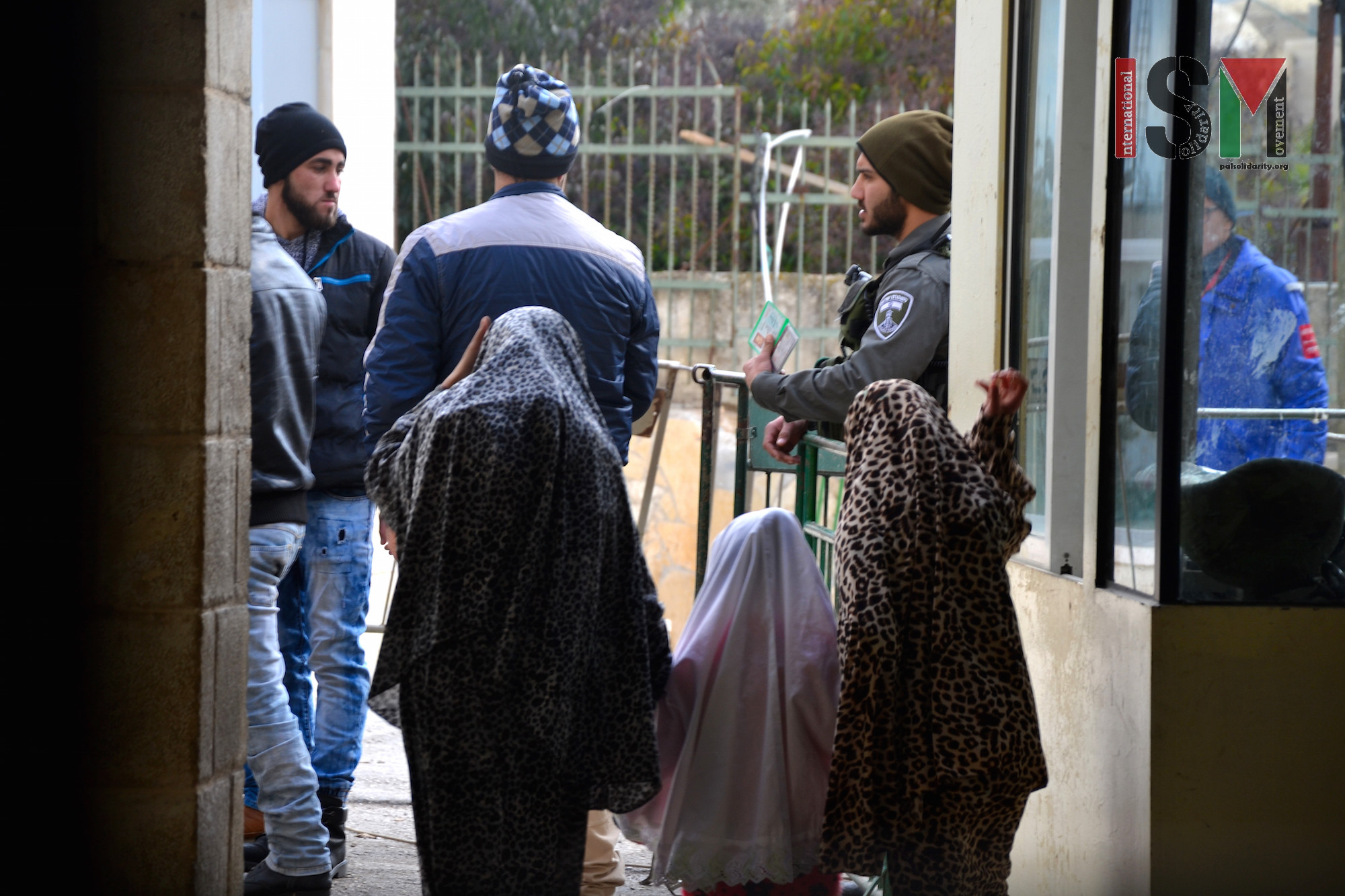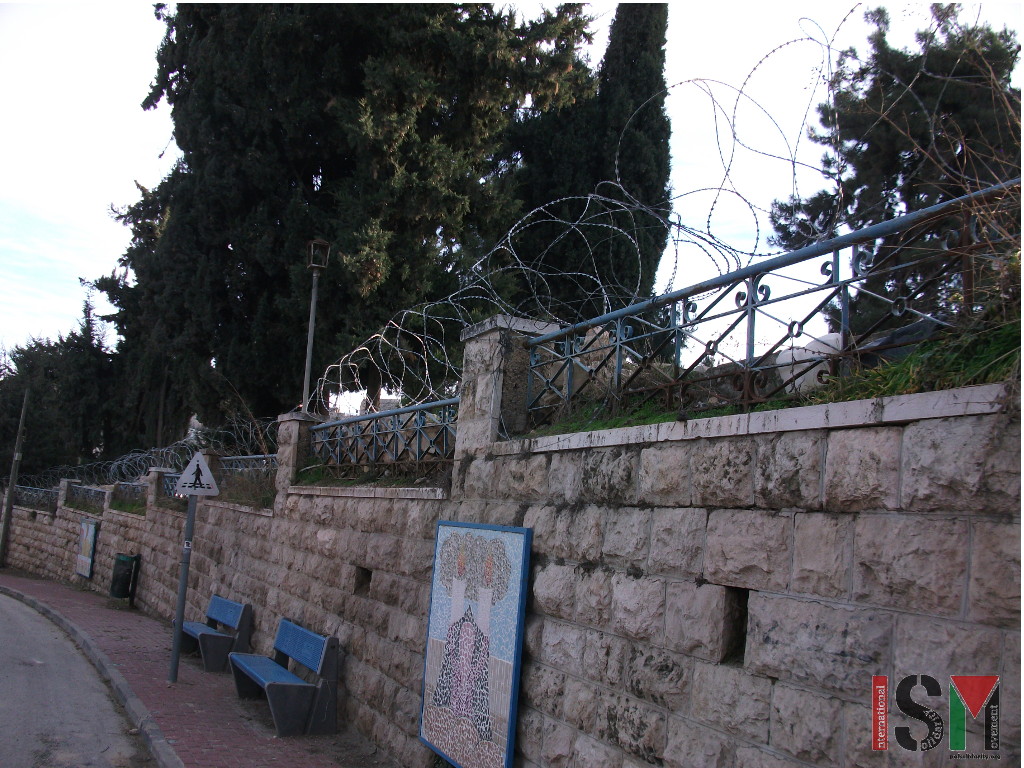Tag: Hebron
-
Israeli Forces escorting Israeli colonial settlers through Palestinian neighbourhood
14th January 2017 | International Solidarity Movement, al-Khalil team | Hebron, occupied Palestine On the 14th of January, 2017, some 120 Israeli colonial settlers were escorted through the Old City by approximately 50 Israeli soldiers and Border Police, in occupied Hebron (al-Khalil). Escorted by countless soldiers from one end of the military base to the other,…
-
Friday Noon Prayer, Hebron (al-Khalil): Oppression, harassment and discrimination
13th January 2017 | International Solidarity Movement, al-Khalil team | Hebron, occupied Palestine On Friday the 13th of January, during the Friday noon prayer at the Ibrahimi Mosque in occupied Hebron (al-Khalil), large numbers of Palestinians were delayed on their way to the prayer, and subjected to ID checks, bag searches and random detainments, carried…
-
Israeli forces sit on graves: ‘securing’ Islamic cemetery with barbed wire
16th January 2017 | International Solidarity Movement, al-Khalil team | Hebron, occupied Palestine Israeli forces on Sunday, 15th January 2017, have put up new barbed wire at the edge of an Islamic cemetery in occupied al-Khalil (Hebron), showing no respect for the graves. The Islamic cemetery is located alongside Shuhada Street in the heart of…



